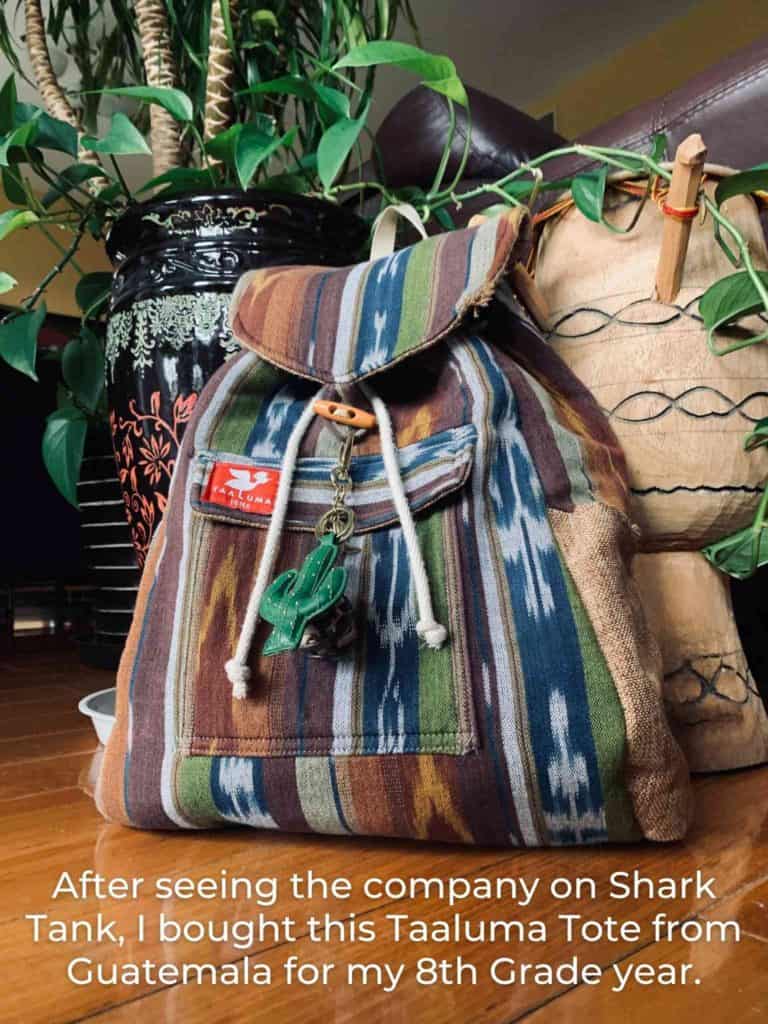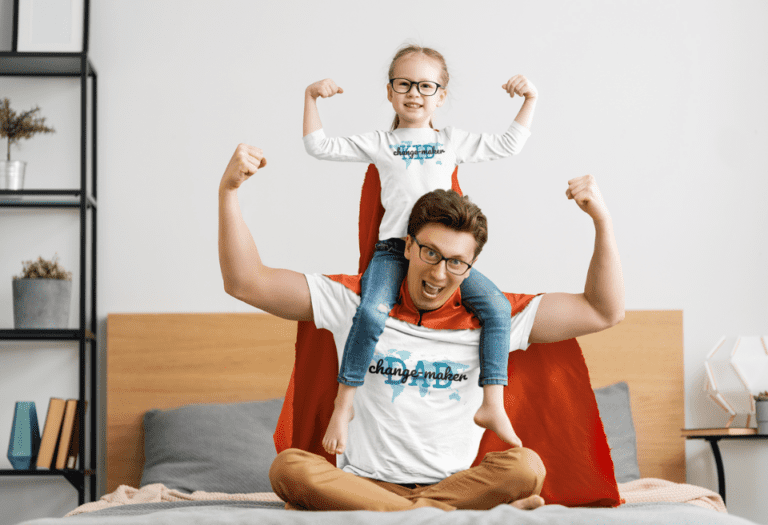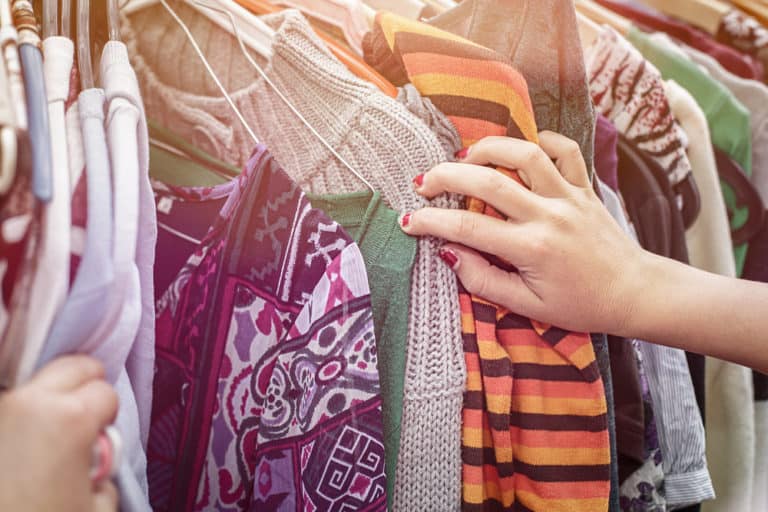Social Impact & Experiential Learning
Nowadays when people ask me what I want to be when I grow up I say “social entrepreneur.” So, I jumped at the chance to get a small taste of what that’s like before I’ve finished high school. It furthered and broadened my perspective even more than I expected!
I was fortunate to take my school’s Applied Learning Social Entrepreneurship Class where I learned about social entrepreneurship, business models, and case studies, as well as helped to run our school’s social enterprise.
“Measuring more than money, prioritizing more than grades.” That’s how I would describe an insight from this amazing class. Rather than a traditional grade system, this class focused on the completion of work and the mastery of eight competencies. It’s not just about doing well on an assignment to get an A, but rather doing well on an assignment to learn.
This experiential learning course runs a social enterprise business simulation named Third Culture Coffee Roasters. TCC (Third Culture Coffee) partners with farmers in Yunnan province in southwestern China.
The coffee beans are sourced in Yunnan, and every year the students look back at the profits and make a donation to the village to assist their coffee production or livelihoods. Currently the donated money is going towards building a wet mill. Approximately 10,000 RMB (around US$1,500) was donated from in-school sales, in the 2021-2022 school year.

“Third Culture Coffee exists to create social impact by roasting and selling specialty-grade coffee through student-led, experiential learning.” TCC mission statement
In addition to running Third Culture Coffee, our class participated in real-world business challenges. During the whole school year we conducted two business challenges, first with our own coffee project and the second with a local social enterprise in Shanghai.

In the first semester we focused on how we could improve our school’s coffee bar to generate the most impact.
Using a Design Thinking process, my group created a series of info-graphics covering what TCC is and how to use the different coffee machines, allowing new teachers to also support TCC and make some delicious free coffee.
Other groups created video series, redesigned the Coffee Bar space, and added a more high-tech coffee machine.
In the second semester, our business challenge had us working with a real-life social enterprise, Baluchon.
Nanou, the founder of Baluchon and a French environmental engineer, tasked my class with aiding Baluchon to tap into the younger Chinese demographic.
We worked hard in our small groups, processing the challenge and our problem hypotheses using the Design Thinking process. After several setbacks due to our COVID situation here in Shanghai, we ended up presenting our final solutions to Nanou just two months later. You can read more about the results of my class’s final solutions in an article by my school.
Learning about business models was especially interesting. I researched several social enterprises over the year. I am quite inspired by the founders and the impact they are making through their ventures.
- Toraja Melo “is a slow, ethical, sustainable, lifestyle brand that is working towards alleviating the cycle of systemic poverty in rural excluded communities, preserving cultural heritage of “backstrap loom weaving” in Indonesia, preventing breakdown of rural communities due to outward migration, and environmental sustainability of natural habitats.”
- Taaluma Totes is focused on taking traditional fabrics from countries all around the world back to America where disabled American’s turn them into homemade tote bags. I bought one to use as my school bag back in middle school. 👇Here is a brief case study video I made for class…you may have seen this business on the US TV show “Shark Tank.”
In class we watched a very insightful TED Talk from Daniela Papi Thornton who highlighted the heart of social entrepreneurship as social change. Here are some important takeaways for change-maker families to consider. Think about your own consumer values and habits. Take the chance to discuss these things as a family. Your values impact your actions.
- Social Entrepreneurship should be about fixing the broken system in order to achieve social and environmental goals
- There is a difference between being a social business founder and a system change leader
- Social entrepreneurship should not be simply about starting a business with a social goal like it is commonly seen as today, but rather, a system between the business, non-profits, government, etc.
- You don’t have to have the skills of a social business founder to do the work of a social entrepreneur
- Social entrepreneurs are (or should be) ‘married’ to solving a problem, not ‘married’ to their solution
- Don’t start a social enterprise on an issue you don’t know about. Learn first and eventually you will find a “you-shaped whole in the world” where your gifts and talents can be put to use
- If you care about a problem, learn about what is already being done to help solve it
Overall, my understanding of social entrepreneurship has changed and broadened over the course of this year. Being able to help run a social enterprise allowed me to obtain a different perspective — an insider perspective, if you will.
I’ve learned that being a social entrepreneur is actually so much more than simply being a social business founder.
Many successful entrepreneurs can be social business leaders, but to generate a larger impact, an ‘ecosystem’ needs to be built. This is an ‘ecosystem’ that includes government, charities, local communities and businesses.
To make lasting and systemic change, you need to get everyone involved. The actions we take as consumers make a difference.

📣 Call to Action
👉 Look into some more social enterprises and consider purchasing from them! Solely buying from social enterprises won’t solve the world’s problems but it is a responsible start, from a consumer perspective. Maybe you are already supporting companies that are making social or environmental change. If not, ask your children to find alternative companies or products that better align with your values.
👉 Reflect on issues that you see in your community. Are there any issues that you have a passion for? Consider ways that you can understand and solve that problem whether it is starting a business or striving for policy changes or even creating a forum that others can learn about the issue.
✨There are countless ways of being a social entrepreneur outside of starting a social business. Share your favorite ideas in the comments section below. 👇 You can inspire others to get informed and involved!









